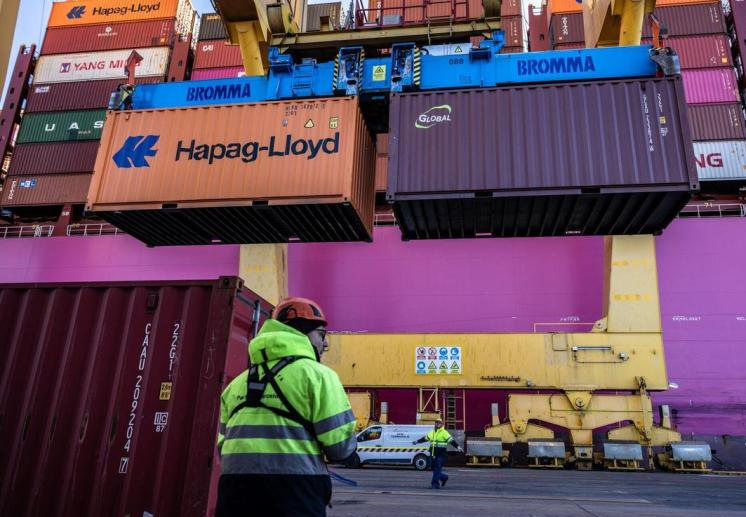
Washington (Bloomberg) - US President-elect Donald Trump's economic team is discussing raising tariffs month by month in a gradual way to increase negotiating leverage while avoiding a spike in inflation, people familiar with the matter said.
Bloomberg, citing anonymous sources, reported that one scenario is a progressive tariff schedule that would increase tariffs by about 2 percent to 5 percent each month, a scenario that would require the use of executive authority under the International Emergency Economic Powers Act.
Trump advisers involved in the discussions include Treasury secretary nominee Scott Bessent, Kevin Hassett, who will be director of the White House National Economic Council, and Stephen Miran, who has been named chairman of the Council of Economic Advisers. The plan is in the early stages of discussion and has not yet been presented to Trump.
Neither a spokesman for Bessent nor Hassett responded to Bloomberg's request for comment, and Milan declined to comment. A spokesman for Trump's transition team referred to Trump's previous public comments and social media posts on the tariff issue.
During his campaign, Trump proposed a 10 to 20 percent tariff on all imports and a 60 percent tax on Chinese imports. After Mr. Trump was elected in November, there was a steady stream of news about how he would implement his tariff plan. Earlier reports that Trump intended to scale back the tariffs were dismissed by him as fake news.
Trump's tariff threats have created more uncertainty for the U.S. and global economy. Economists at UBS believe that if Trump takes office and gradually raises tariffs, it will be very tricky for the Fed, which is still fighting a final battle against inflation.
In an interview with Bloomberg TV on Tuesday, UBS's head of global economics and strategy research, Peter Kaptan, pointed out that tariffs are usually one-off price level adjustments that, as long as they are not too large, will not trigger spillover effects that push up inflation.
But he warned: "If tariffs are raised incrementally, it will be a bit like a repeat of the coronavirus and the Ukraine shock, where rounds of supply shocks will follow and peak inflation will start to climb sharply." So I think it's going to be much more difficult for central banks to deal with that."
Kaptan believes financial markets have not priced in the risk of higher U.S. tariffs. "We do think it's going to push up inflation. And, of course, it also comes down to who will be taxed, how much will be taxed, and who will be exempted."
Investors have been selling Treasurys recently on fears that inflation will stay high because of the new tariffs. The latest U.S. inflation report on Wednesday is expected to show only a slight decline in U.S. inflation at the end of 2024, which could provide support for the Federal Reserve to slow the pace of rate cuts.

The South Korean political arena has once again been embroiled in a public controversy over a judicial investigation that has shaken the entire nation.
The South Korean political arena has once again been embroi…
On the morning of December 29th local time, the precious me…
According to the US media Barchart, recently, the fluctuati…
On December 29th, Mar-a-Lago in Florida, USA, witnessed a h…
SoftBank Group announced on Monday that it has agreed to ac…
Recently, the US State Department issued a visa ban, adding…